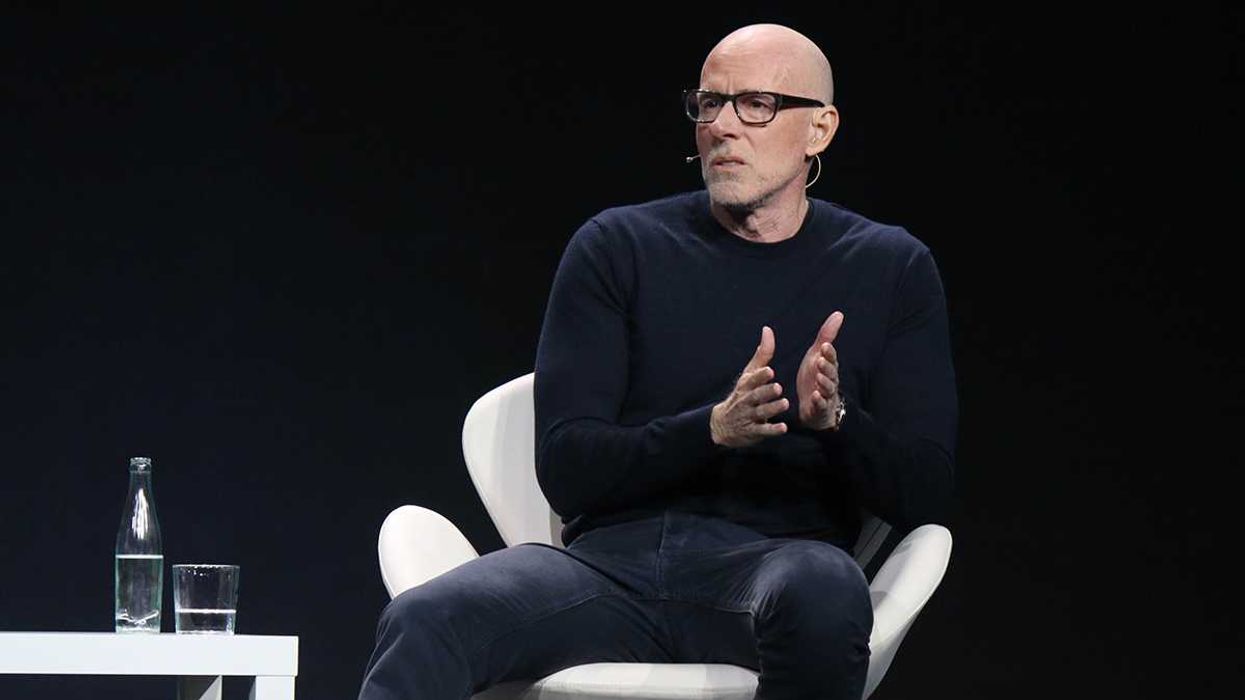Article originally appeared on...
Ocean pollution is a huge problem. The notorious Great Pacific Garbage Patch, for example, contains enough trash to cover Texas twice-over. One component of ocean pollution that's especially threatening to human life is micro-plastics, pieces of plastic smaller than 5mm long (about the size of a sesame seed). When plastic pollution enters the ocean, the large pieces of plastic are broken down over time by exposure to the sea elements into very small plastic particles, which then exit the large garbage patches and spread throughout the ocean, eventually being consumed or otherwise absorbed by aquatic life, and working their way up the food chain to humans. According to a 2019 study cited by Consumer Reports, the average American eats, drinks, and breathes more than 74,000 toxic micro plastic particles every year.
Not only are micro-plastics incredibly harmful, their size and ubiquity make them extremely hard to clean out of the ocean. This is why most ocean anti-pollution projects, such as The Ocean Cleanup, focus on removing larger pieces of trash, before they can degrade. However a few years ago in 2019 Fionn Ferreira, just 18 years old at the time, invented an effective new method for removing micro-plastics from the oceans.
Ferreira was kayaking along the coast in Ballydehob, his hometown in west Cork Ireland, when he came upon a rock coated in oil. Ferreira noticed that small bits of plastic were sticking to the oil-coated-rock, which got Ferreira thinking. "In chemistry, like attracts like," Ferreira noted. He decided to combine vegetable oil and magnetite powder to create a nontoxic ferrofluid, a "magnetic liquid," or liquid that acts as a carrier for tiny magnetic particles—since ferrofluids and plastics attract when in the presence of water. Ferreira would add his ferrofluid to water samples full of micro-plastics, then remove the ferrofluid using a magnet, taking the micro-plastics with it. After hundreds of tests, Ferreira's ferrofluid was able to successfully remove at least 87% of micro-plastics from the water samples.
Since his discovery, Ferreira was named the overall winner of the 2019 Google Science Fair, an annual competition open to high schools around the world, and was awarded a $50,000 prize. He also established a company focused on micro-plastic removal technology, Fionn & Co., while also pursuing a Chemistry degree at the University of Groningen in the Netherlands. Meanwhile, ferrofluids have been tested as a possible tool for cleaning up oil spills, and early tests have been encouraging.
Ultimately, Ferreira believes that the only way to solve the massive problem of Ocean pollution is to change our consumption habits. "I'm not saying that my project is the solution," he said. "The solution is that we stop using plastic altogether."
















 Self reflection.Photo credit
Self reflection.Photo credit  Older woman touching hands with a younger self.Photo credit
Older woman touching hands with a younger self.Photo credit  Sign reads, "Regrets Behind You."Photo credit
Sign reads, "Regrets Behind You."Photo credit 
 Couple talking in the woods.
Couple talking in the woods. Woman and man have a conversation.
Woman and man have a conversation. A chat on the couch.
A chat on the couch. Two people high-five working out.
Two people high-five working out. Movie scene from Night at the Roxbury.
Movie scene from Night at the Roxbury.  Friends laughing together.
Friends laughing together.
 Maya Angelou reciting her poem "On the Pulse of Morning" at President Bill Clinton's inauguration in 1993.William J. Clinton Presidential Library/
Maya Angelou reciting her poem "On the Pulse of Morning" at President Bill Clinton's inauguration in 1993.William J. Clinton Presidential Library/  First edition front and back covers and spine of "I Know Why the Caged Bird Sings."Raptis Rare Books/
First edition front and back covers and spine of "I Know Why the Caged Bird Sings."Raptis Rare Books/ 

 Tow truck towing a car in its bedCanva
Tow truck towing a car in its bedCanva  Sad woman looks at her phoneCanva
Sad woman looks at her phoneCanva  A group of young people at a house partyCanva
A group of young people at a house partyCanva  Fed-up woman gif
Fed-up woman gif Police show up at a house party
Police show up at a house party 
 A trendy restaurant in the middle of the dayCanva
A trendy restaurant in the middle of the dayCanva A reserved table at a restaurantCanva
A reserved table at a restaurantCanva Gif of Tim Robinson asking "What?' via
Gif of Tim Robinson asking "What?' via 

 An octopus floating in the oceanCanva
An octopus floating in the oceanCanva